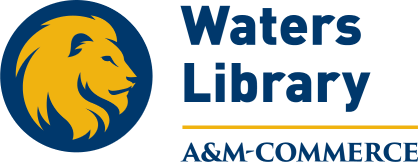Course Reading List Program
Using Reading Lists and Requesting Course Reserves
As a faculty member, you may place items on reserve for use by the students in your class or classes. For equitability and safety for all students, Waters Library has decided course resources will only be offered online.
There are 3 ways for you to participate in our program.
- Use Reading Lists: For a streamlined experience with providing articles, e-books, and other media to your students, we highly recommend using Reading Lists in D2L. This library service allows you to identify and add items to an online resource list and submit your requests directly to the library. We will confirm links are active, help you direct students to the correct chapters, and review copyright.
Learn how to access and use Reading Lists with our Research Guide or contact Amy San Antonio for more information. - Place an article on reserve: If you request an article, we will attempt to locate the article and provide it to you through Reading Lists, unless otherwise specified.
- Place a book on reserve: If you request a print book or other non-digital item:
- We will attempt to acquire a multi-user e-book.
- If an affordable ebook is not available:
- We may digitize parts of physical works, within limitations of fair use (generally 10-15% of the material).
- We may use the Copyright Clearance Center to purchase rights for online use, when available.
Personal Copies
With the program now fully online, the library will no longer keep personal copies for an entire semester. We may digitize pages following copyright and fair use limitations on a case-by-case basis. Then, we will immediately return the items to the faculty member.
Online Only
If you wish to place an item on Course Reserves, note that you are agreeing to participate in this program fully online.
The items will be made available through Reading Lists, whether you create the list yourself or request items using the article and book request forms above. This platform allows faculty to directly collect and provide readings, media, and other content to their students. Portions of print items can only be accessed online and will only be made available as fair use or as copyright permits.
Alternative Options*
There are situations where we may need to look for alternative options. Some textbook publishers do not provide electronic purchasing options for libraries. Approximately 85% of existing course textbooks are simply unavailable to libraries in any other format than print. Textbook publishers have built their profit models around selling e-textbooks directly to students. Despite this, we also know that the cost of textbooks and other course materials represent a major financial hurdle for students at A&M-Commerce. Despite the library’s commitment to provide optimal service to faculty and students, the following publishers will not allow us to purchase a multi-user electronic textbook of their publications:
- Pearson
- Cengage
- Houghton
- McGraw Hill
- Oxford University Press Canada (Textbook Division)
- Thieme
- Elsevier imprints (especially in veterinary and health science) such as:
- Elsevier Health Science
- Mosby
- Saunders
In the case that a textbook cannot be made available through the library, we suggest instructors:
- Compile a collection of resources through Reading Lists for students to use in lieu of a high cost textbook.
- Use an existing e-book in the relevant subject area from the library’s e-book collection or request that the library purchase one. Many academic e-books are not considered textbooks and are more readily available for the library to purchase.
- Adopt an open educational resource (OER). OERs are freely available educational materials that are openly licensed to allow for re-use and modification by instructors. Contact Sarah Northam for any questions.
*Alternative Options text adapted from The University of Guelph post on textbooks in a virtual environment.
Copyright Notice
Circular 21 - Reproduction of Copyrighted Works by Educators and Librarians
- Revised: November 2009
- Copied from U.S. Copyright Office: August 2011
